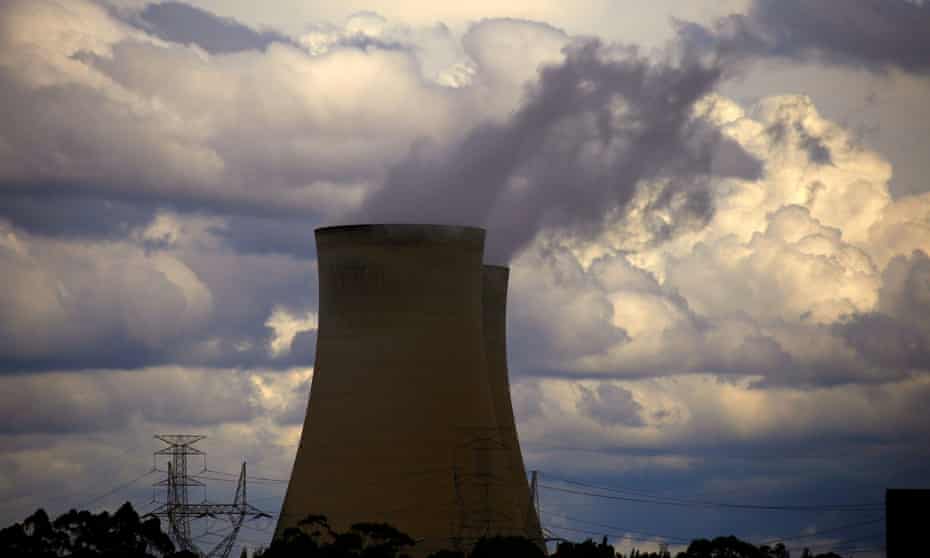Extract from The Guardian
Australia’s largest power generator vows to go ahead with demerger after tech billionaire buys 11% stake in company.

Tue 3 May 2022 14.08 AEST
First published on Tue 3 May 2022 11.50 AESTCannon-Brookes late on Monday surprised the market by announcing his family company Grok Ventures had snared 11.28% of AGL. On Tuesday he warned splitting into a generator and retailing arm would not only destroy shareholder value by clinging on to ailing coal-fired power plants but would also be “globally irresponsible” because of the ongoing emissions by Australia’s biggest single polluter.
The co-founder of tech services firm Atlassian said his aim was to muster a 25% shareholder rejection of the demerger plan by the 15 June vote, saying that the initial response had been positive.
“Larger shareholders that we had talked to beforehand and a whole lot of smaller shareholders … who are probably pretty aligned anyway have been super supportive,” Cannon-Brookes said.
He said the recent soaring in wholesale power prices – caused in part by breakdowns of coal plants including units at AGL’s Loy Yang A power station – underscored the need to accelerate the shift to renewables because of their zero-cost fuel. Wind, solar and hydro presently supply about a third of the grid’s electricity.
“I believe there’s a far more positive and bright future for AGL leaning into the transition and being a meaningful participant in that transition,” Cannon-Brookes said. “And that requires keeping the company together.”
The coal plants – Liddell and Bayswater in New South Wales and Victoria’s Loy Yang A – will shut down anyway. A combined AGL would be better able to manage their exits, including for the thousands of employees affected, he said.
“Demerging AGL is a terrible outcome for the workers because when they do shut down – which they will – it will be brutal because it will be like driving a car into a wall,” Cannon-Brookes said.
AGL’s shareholders were initially cool on the intervention. The company’s shares ended Tuesday down 3.1% to $8.35.
In a statement to the ASX on Tuesday, AGL said its board had considered the share grab, and advised shareholders to “take no action” that would stop the demerger of the company into a generator arm, Accel Energy, and a retail arm, AGL Australia.
The board “continues to believe that AGL’s proposed demerger is in the best interests of AGL shareholders as it creates the potential to maximise growth in the value of shares”, the statement said.
It lists three reasons, including that the current plan gives each of the new companies “the freedom to pursue individual strategies and growth initiatives”.
“AGL remains committed to progressing the proposed demerger with a view to achieving implementation by 30 June 2022 and a responsible transition of Australia’s energy system,” it said.
In a separate statement, AGL announced a $2bn partnership with Global Infrastructure Partners that would help accelerate renewable energy projects under a demerged Accel Energy. About 2.7 gigawatts of “quality” renewables will result of the arrangement that hinges on the demerger proceeding.
“We’ve been working on for six months plus, a competitive international process,” Hunt said. “We just finalised various approvals in the last little while.”
Hunt said Cannon-Brookes had said a lot about what he intended to do with AGL in terms of the faster closure on fossil-fuel generation. “But by his admission, he does not have a plan,” Hunt said.
“The company has been working on this restructuring and looking at other alternatives for over a year,” he said. “We’ve considered all sorts of other options and those options are talked about in the scheme booklet [sent out to shareholders before the demerger vote].”
Hunt warned that “just wishing a faster decarbonisation pathway means without the national energy market being ready for that electricity supply and electricity pricing” Cannon-Brookes’ plan would force the company’s glide plan out of fossil fuels “into a tailspin”.
“That’s disastrous for electricity prices,” Hunt said. “The lights will go out and it will not be recoverable.”
“We’ve got a pathway,” he said. “It’s the right one that we have worked on for a long time, and we believe that shareholders will support it.”
No comments:
Post a Comment